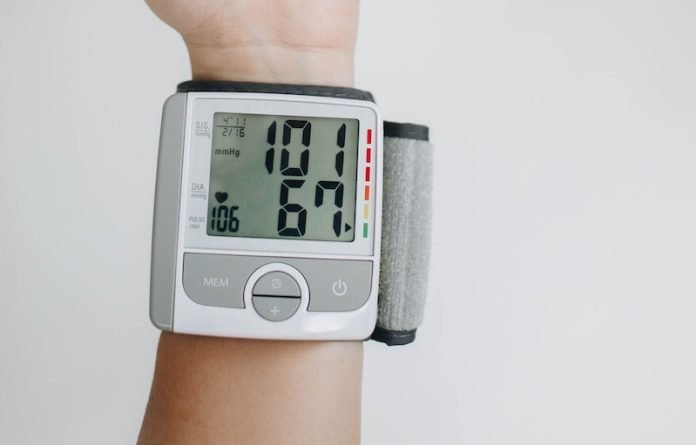
Once upon a time, there was a team of researchers from Beijing Anzhen Hospital and other places who did a study on how controlling blood pressure can affect our brain health.
They found that the longer a person’s blood pressure levels stay under control, the lower their risk is for dementia.
Dementia is a condition that affects our brain and can make it harder for us to remember things, think clearly, and do everyday tasks.
The researchers found that keeping the upper number of our blood pressure (called systolic blood pressure) consistently under control is the best way to keep our heart and brain healthy.
Nearly half of adults in the United States have high blood pressure, but only about 1 in 5 have their condition under control.
This can be done through regular exercise, eating healthy foods, and taking medication if needed.
Previous studies have shown that uncontrolled high blood pressure can increase our risk of dementia and cognitive decline.
However, blood pressure levels can fluctuate over time, even throughout the day. This makes it hard to know if our blood pressure is truly under control.
In this study, the researchers looked at the link between the length of time our blood pressure stays in the target range and our risk of cognitive decline or dementia.
They analyzed data from a study called SPRINT, which looked at the effects of different blood pressure treatments in people with hypertension (high blood pressure).
The researchers found that people whose systolic blood pressure levels stayed in the target range for longer were less likely to be diagnosed with probable dementia.
Each 31.5% increase in the time our blood pressure stayed in the target range was associated with a 16% lower risk of dementia.
This study shows that keeping our blood pressure under control for a longer period of time can have a positive effect on our brain health.
By tracking how long our blood pressure stays in the target range, healthcare providers can identify patients who are at higher risk of dementia and take steps to help them stay healthy.
It’s important to remember that controlling our blood pressure is just one part of maintaining good heart and brain health.
Eating a healthy diet, getting regular exercise, and staying socially active can also help keep our brains healthy and reduce our risk of dementia.
How to reduce dementia risk
While there is no surefire way to prevent dementia, there are several things you can do to reduce your risk. Here are some tips:
Exercise regularly: Exercise can help improve blood flow to the brain and reduce the risk of dementia. Aim for at least 30 minutes of moderate exercise most days of the week.
Eat a healthy diet: A healthy diet, rich in fruits, vegetables, whole grains, lean protein, and healthy fats can help reduce the risk of dementia.
Stay socially active: Staying socially active can help keep your brain engaged and may reduce the risk of dementia.
Manage chronic health conditions: Chronic health conditions, such as high blood pressure, diabetes, and high cholesterol, can increase the risk of dementia.
Managing these conditions through regular check-ups, medication, and lifestyle changes can help reduce your risk.
Challenge your brain: Engaging in mentally stimulating activities, such as reading, puzzles, or learning a new skill, can help keep your brain active and reduce the risk of dementia.
Get enough sleep: Getting enough sleep is important for overall brain health. Aim for at least 7-8 hours of sleep each night.
By taking these steps, you can help reduce your risk of dementia and maintain a healthy brain.
If you care about high blood pressure, please read studies that early time-restricted eating could help improve blood pressure, and coconut sugar could help reduce blood pressure and artery stiffness.
For more information about brain health, please see recent studies about antioxidants that could help reduce dementia risk, and flavonoid-rich foods could improve survival in Parkinson’s.
Copyright © 2023 Knowridge Science Report. All rights reserved.



